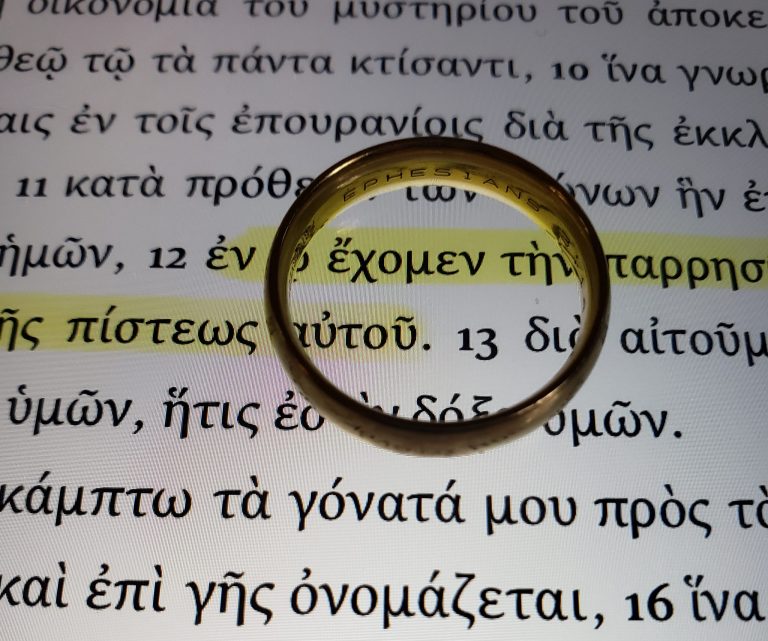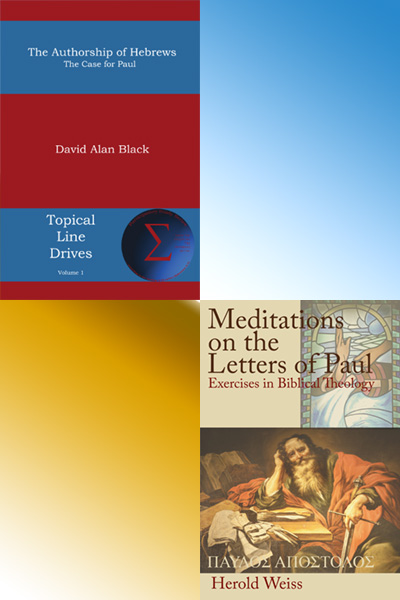A Note on Relationships between Texts
Various passages in the Bible relate in different ways. I give a sort outline of these relationships.
Discussion of the historical-critical method and its various methodologies and their application to Bible study and formation of doctrine.

Various passages in the Bible relate in different ways. I give a sort outline of these relationships.

In my business role as president of Energion Publications, I’ve just cleared the proofs for the release of the book The Byzantine Text-Type & New Testament Textual Criticism by Dr. Harry Sturz. This is a reproduction of the original book, released in 1984 and is produced under license from HarperCollins Christian Books. Note: This discussion…
This article is quite helpful in understanding what biblical criticism is, how it is helpful, and also how it may be threatening to some. Here’s a quote: The basic point, however, is an important one: until we know what kind of material we are dealing with, we don’t know what questions it is sensible to…

(Leave Christology out of it!) Reading the post A Similarity Between Reasoned Eclecticism & Byzantine Priority over on the Evangelical Textual Criticism blog (HT: Dave Black Online, Monday, June 6, 12:35), set me to thinking. Fair warning: This will be a bit rambling. These are thoughts triggered by the post, not largely in response to…
[ncs_ad pid=’0664239013′ adtype=’aer.io’] I’m reading through Luke Timothy Johnson’s commentary in the New Testament Library and have just completed the introduction. I have a couple of thoughts today, not least of which is to note the problem with writing introductions. For a reader to truly follow an introduction, it would best come after the commentary…

This morning Dave Black posted some things about reading Hebrews from the Good News Bible (TEV) and also on authorship and canonicity. I’m not posting to enter into a debate on this point, but rather to note an attitude. Dave says: The undeniable reality is that questions of canon and authorship matter. Of course, both…

Jeremy Myers at Redeeming God has an interesting post on textual criticism (HT: Thomas Hudgins). Myers is comparing the textual commentaries written by Bruce Metzger (with input of the UBS committee) and Philip W. Comfort. It’s fun to watch the critical scholars disagree! If anyone believes I consider that a negative comment on critical scholars,…
I was mentioned by Ed Brayton (blogs at Dispatches from the Culture Wars) in a comment to a post on Facebook, and made a couple of comments myself. Here’s the Facebook post: There are two things here that interest me. First is the claim that moderates and liberals don’t take their faith seriously. This is…
I’ve posted a question that originates with Thomas Hudgins over on the Energion Discussion blog. Here are my comments to go with that post. The question has quite a number of implications. For example, if your listeners do not normally look at the textual notes in their Bible translation, they might not be aware of…
When I was working on my MA, one of my professors recommended a paper I had written for publication. He suggested submitting it to the university’s journal, Andrews University Seminary Studies. I was of course greatly pleased to have one of my papers recognized in this way, especially considering the respect I had for that…